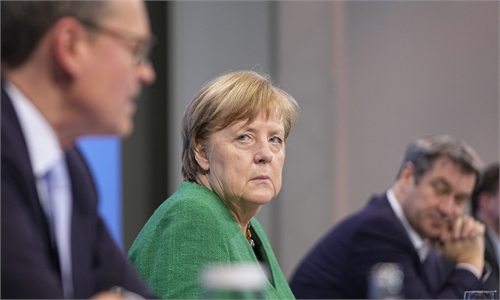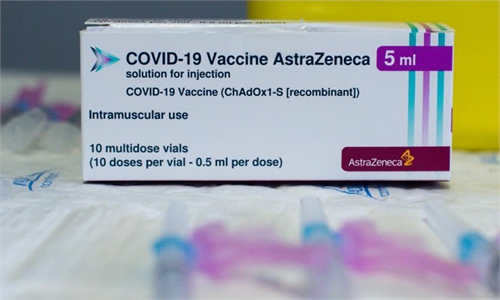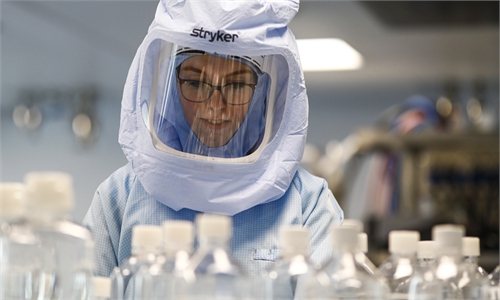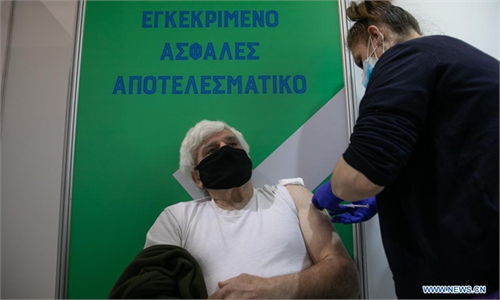UPDATE: Will concerns about the AstraZeneca vaccine hinder global COVID-19 immunization efforts?
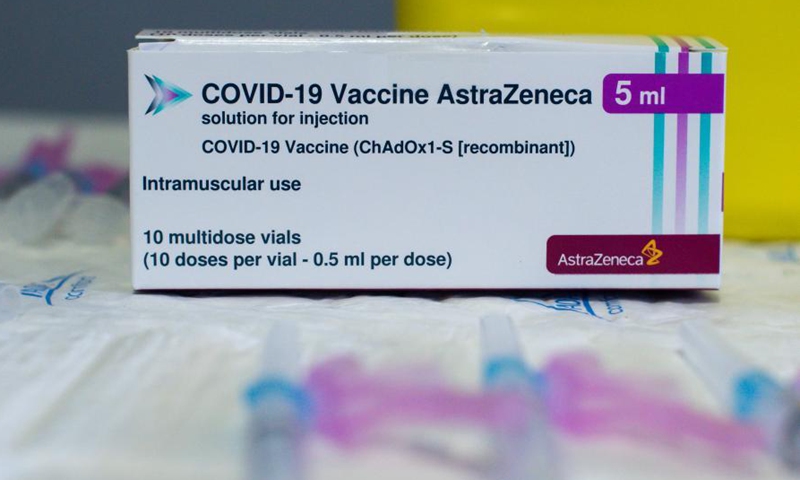
Photo taken on March 12, 2021 shows AstraZeneca/Oxford vaccines at a hospital in Caceres province in Spain. Photo:Xinhua
Amid safety concerns over AstraZeneca's coronavirus vaccine, the European Medicines Agency (EMA) announced it had found a possible link between this vaccine and a rare clotting disorder, ABC News reported Wednesday.However, the European drug regulator did not recommend any new restrictions on the vaccine for people aged 18 and over, saying the benefits of the shot still outweigh risks, according to ABC News.
Following EMA's announcement, the UK Medicines and Healthcare Products Regulatory Agency (MHRA) said on the same day that the AstraZeneca vaccine has huge benefits but people under 30 will be offered an alternative due to a rare blood clot risk.
The MHRA said that, while it is studying the possible connection between AstraZeneca's coronavirus vaccine and rare blood clots, the Pfizer and Moderna vaccines should be offered to people in that age group.
Dr June Raine, the head of the MHRA, says that the benefits "continue to outweigh the risks for the vast majority of people."
Chinese vaccine experts said that the inoculation drive in Europe and the global distribution of vaccines will not be greatly affected at the moment, despite concerns over a possible link between AstraZeneca vaccine and blood clots, as more investigation is needed to determine if the rare events resulted from inherent problems with the vaccine.
The European Medicines Agency (EMA) denied that it had already established a causal connection between the Oxford/AstraZeneca vaccine and a rare blood clotting syndrome, after Marco Cavaleri, the EMA's head of vaccines, told the media there was a link, the Guardian reported on Tuesday.
The agency said in a statement that it expected to announce its findings on Wednesday or Thursday.
The World Health Organization (WHO) also released a statement on Tuesday saying that the "risk-benefit" balance for AstraZeneca's COVID-19 vaccine was still "largely" positive.
Despite the EMA's denial, a trial of the vaccine on children was halted, media reported on Wednesday.
The AstraZeneca COVID-19 vaccine was given WHO Emergency Use Listing in February, and on February 25, UNICEF signed a COVID-19 vaccine supply agreement with AstraZeneca that enabled access to 170 million doses secured under the COVAX agreement for about 85 countries and regions.
More evidence is needed to determine whether the reported embolic and thrombotic events were caused by inherent problems with the vaccine or by the quality of production, Feng Duojia, president of the China Vaccine Industry Association, told the Global Times on Wednesday.
Tao Lina, a Shanghai-based vaccine expert, told the Global Times that the possibility of the vaccine causing blood clots cannot be ruled out - but if the occurrence rate is one in 100,000 or one in 1 million, then it should not be a cause for concern.
Both experts said that the vaccination process in Europe and the global distribution of vaccines will not be much affected at the moment.
Feng said the global vaccine roll-out might see a big change after the WHO makes a clear determination about the vaccine, but for now the benefits still outweigh the risk of blood clots.
According to WHO website , 272 candidate vaccines are being developed worldwide, with 86 in clinical trials in countries and regions including Germany, China, Russia, Britain, and the US.
Some Chinese experts previously suggested that the WHO should suspend the distribution of the AstraZeneca vaccine, after some 15 European countries halted its use over blood clot concerns in the middle of March.
